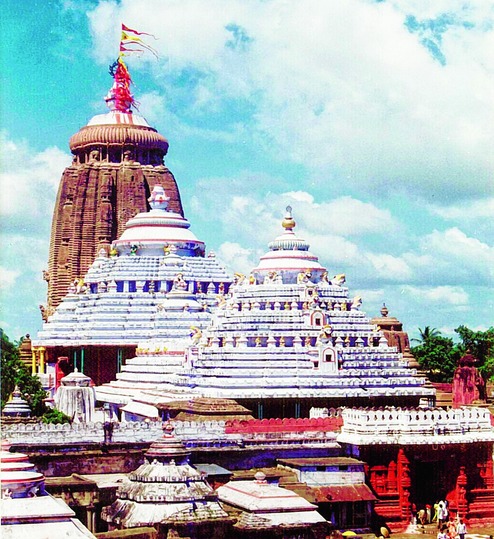
Bhubaneswar, April 23: Questions have been raised over whether the state government will accept the Justice Bimal Prasad Das Commission's recommendations to bring about reforms in the affairs of the Puri Shri Jagannath Temple. So far, four commissions have submitted their reports to bring about reforms in the affairs of the 12th century shrine. However, no action on the recommendations has been taken so far.
Servitor and chief protector of Lord Jagannath's chariot Jagannath Swain Mohapatra said: "The state government should take the servitors into confidence while considering reforms at the shrine. Mere setting up of commissions will not help."
The first commission was constituted in 1977 under Justice B.K. Patra following a stampede in the Puri Jagannath temple during the Nabakalabara that year. However, successive governments did not try to implement its recommendations fearing a public backlash.
One of the recommendations of Justice B.K. Patra was to abolish the hereditary rights enjoyed by the servitors ( sevaks). As per the commission's recommendation, a servitor who fails to turn up for duty on any particular day without sufficient reasons is liable to be dismissed. The commission was of the opinion that only sevaks serious about their duties ought to be encouraged to take up the service to the Lord.
"In spite of this, if it is found that the rituals are not performed punctually and regularly, the hereditary rights of the servitors should be abolished by legislation and thereafter the required number of sevaks should be appointed afresh on monthly salary," the commission's report said. It also suggested that a reserve body of servitors be maintained on salary to avoid problems during emergencies.
Another recommendation of the commission is that the number of sadhibandha sevaks (sevaks entrusted with a particular job) in each category should be reduced by removing those who hardly ever perform these services.
The other recommendation that has caused resentment among the servitors talks against soliciting of dakhina (donation) by a sevak on the temple premises.
Similarly, the practice of placing three plates in front of the three deities for Pindika collection should be discontinued. Instead of that, the commission says, a strong sealed box with a seal on the top of it should be placed just below the ratna singhasan.
The commission also argued that sevaks should not seek any kind of donation from the pilgrims. The commission's suggestion of construction of permanent chariots for the deities has also sparked off a serious debate. Taking into account the requirement of a large amount of wood every year to construct the chariots, the commission has suggested construction of permanent chariots for the rath yatra.
Another commission was constituted in 1978 under the then governor of Odisha B.D. Sharma.
Puri king and five eminent persons were the members of the committee. The committee had submitted its report within six months. The commission had dealt with the sevayats' rights, record of rights of the servitors and on how to bring a reform in the Lord Jagannath's rosha sala (cooking gas).
In 1993, the state government had appointed the Jiban Mohan Mohapatra Commission following a stampede during the "Nagarjuna Vesha" (when the deities are dressed like warriors) of Lord Jagannath on the premises of the Shree Jagannath Temple in Puri. The tragedy had claimed three lives. Its report was said to be missing.
The judicial commission's report assumes significance as crowd management is a major issue. Sources said the Justice Mohapatra had passed adverse remarks against some political leaders, administrators and police in his report and had made some valuable recommendations to avoid repetition of such unfortunate incident in the Jagannath temple. But as the successive governments have found it difficult to accept the recommendations, the report could never come to light.
Another commission was constituted under the leadership of Justice P.K. Mohanty following the death of four widows in a stampede. The commission sat for three years and recommended a number of measures. But, no action was taken in this case either.
In 2016, the state government constituted a judicial commission to bring reforms into the Puri Shree Jagannath temple following a hue and cry across the state over the attack on the Puri district collector and delay in conducting the rituals of the Lord Jagannath on the niladri bije day on July 17, the last leg of rath yatra.











